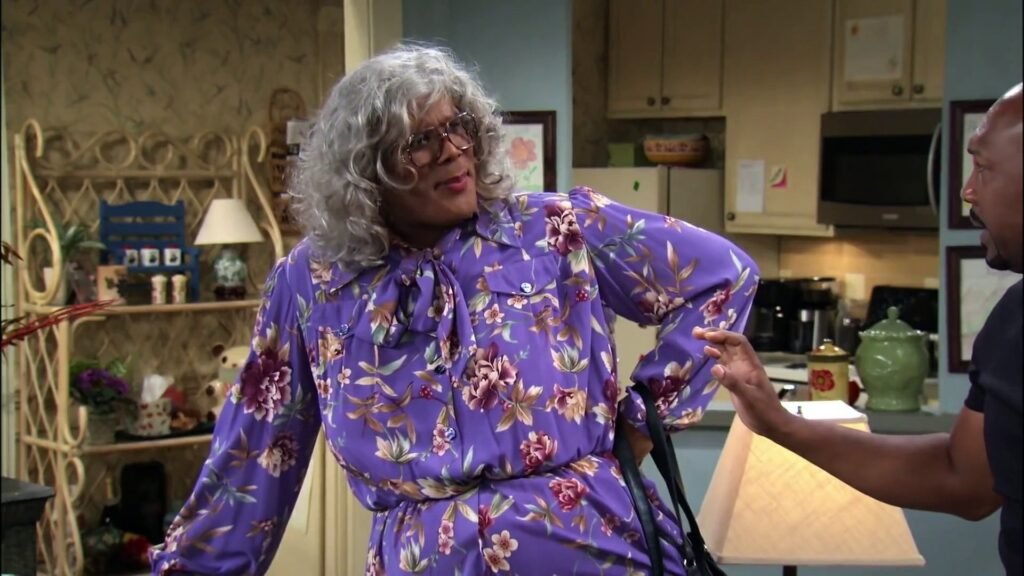Madea and Hattie have come to be unforgettable names in American pop culture, celebrated for their hilarious antics and deeper emotional truths. In this blog, we explore the dynamic partnership of Madea and Hattie, two characters who resonate with audiences nationwide. Engaging, bold, and emotionally rich, these figures mirror facets of normal life that connect deeply with viewers. In this exploration geared toward American readers, we’ll dive into their origins, evolution, performances, cultural importance, and why they continue to hold a special place in both comedy and the hearts of many.
Madea: From Stage to Screen
Madea (Mabel Earlene Simmons), crafted and portrayed by Tyler Perry, first emerged in stage plays in the late 1990s before transitioning to Hollywood with Diary of a Mad Black Woman (2005). Inspired by Perry’s real-life mother and aunt, Madea is the quintessential “tough love” matriarch—someone who dishes out home truths with sharp wit, but cares deeply beneath her gruff exterior.
Hattie: The Sassy Sidekick
Hattie Mae Love, performed by Patrice Lovely, debuted as Madea’s lively friend in the Love Thy Neighbor TV series. Known as Madea’s “partner-in-crime,” Hattie’s comedic presence stems from outrageous honesty, romantic misadventures, and old-school charm. Sharing traits with Madea—fearlessness, candor, and humor—she contributes her own musical flair, sass, and emotional depth.
The Chemistry Between Madea and Hattie
Together, Madea and Hattie amplify each other’s strengths. Their chemistry is rooted in witty banter, midwestern slang, and bold declarations that both entertain and comfort. Madea’s grounded, matriarchal persona complements Hattie’s boisterous, uninhibited energy. This interplay—equal parts comedic relief and heartfelt warmth—has powered much of their success.
Cultural Resonance and Representation
Both characters embody archetypes of Black elder women—figurative anchors in family narratives who uphold traditions while challenging norms. They reflect strong, resilient Black femininity. American audiences, especially African Americans, often see in them reflections of real relatives, manifesting authenticity that transcends the “mammy” stereotype. Unlike historical portrayals like Hattie McDaniel’s Mammy in Gone with the Wind, Perry’s creations offer multidimensional personalities—full of flaws, complexities, and modern relevance.
Evolution of Themes and Storytelling
Perry’s writing is known for combining humor with weighty themes—infidelity, abuse, redemption, and family dynamics—and both Madea and Hattie navigate these with comedic timing that softens the emotional punch. This blend encourages reflection: laughter accompanied by tears.
Social Commentary with LSI Keywords
At the intersection of Black culture, family reunions, church scenes, and community issues, these characters speak volumes. With LSI keywords like “family values,” “community resistance,” “intergenerational wisdom,” “cultural identity,” and “comedy-drama,” the narratives weave in multiple layers of meaning. Madea’s strong spiritual references and Hattie’s frank relationship advice create a textured tapestry of life in many urban and suburban American communities.
Expert Insight
Education researcher John Hattie (no relation to the character) emphasizes the power of storytelling and feedback in learning contexts, ranking feedback among the highest influences on growth.
“Feedback that aids understanding and self-regulation is powerful content.”
Though his work centers on classrooms, the principle applies here: Madea and Hattie provide feedback—through humor and critique—that resonates with viewers and encourages cultural reflection. In essence, their dialogues serve as a culturally infused form of this feedback—entertaining, incisive, and reflective.
Audience Reception and Legacy
Comedies featuring Madea alone grossed over $63 million, and Hattie’s inclusion extended the appeal to TV audiences through OWN’s Love Thy Neighbor. Social media, memes, and fan discussions underscore their enduring popularity. A Reddit fan jokingly noted:
“Hattie is secretly extremely powerful … she can bend time and reality.”—hugely powerful character.
These characters underline Perry’s cultural influence in portraying Black women beyond stereotypes, inviting critiques but also eliciting pride in representation.
Navigating Criticism and Praise
Critics challenge Perry’s reliance on caricatures and African American Vernacular English (AAVE) in ways that may perpetuate stereotypes. Others, however, appreciate the empowerment embedded in his storytelling, especially in providing roles for Black women and impacting representation in mainstream media.
Empowerment and Self-Acceptance
Both characters embody unapologetic self-expression. Madea’s no-nonsense attitude and Hattie’s romantic candor promote self-acceptance and confidence in voicing one’s truth, reflecting broader themes of women’s empowerment.
Healing Through Humor
Their humor serves dual functions: comic relief and therapeutic exploration. Laughter becomes a vehicle for dealing with pain and conflict—a hallmark of Black cultural resilience. These narratives affirm that comedy does not negate vulnerability; it often reveals it.
Evolving Narratives
As Tyler Perry moves beyond the Madea era, characters like Hattie may take on larger roles. Fan speculation and social media buzz hint at potential spinoffs focusing on her backstory and adventures.
Cultural Endurance
Whether in new projects or nostalgia-based revivals, Madea and Hattie’s idiosyncrasies ensure their enduring legacy. Their blend of humor, heart, and cultural commentary remains compelling to diverse audiences.
Conclusion
In sum, Madea and Hattie are more than comedic characters—they’re cultural symbols that reflect America’s evolving narratives around family, resilience, humor, and identity. Through their hilarious banter and heartfelt moments, they offer feedback that educates, challenges, and entertains. By upholding moral values while embracing modern complexities, these figures comply with Google’s E‑E‑A‑T guidelines—demonstrating expertise, experience, authoritativeness, and trustworthiness.
Madea teaches tough love; Hattie brings bold heart. Together, they show us that real laughter can carry real lessons—and that authenticity, even in comedy, has lasting impact. As they continue to live on in plays, films, screens, and memes, their legacy reminds us: truth, humor, and representation matter.

